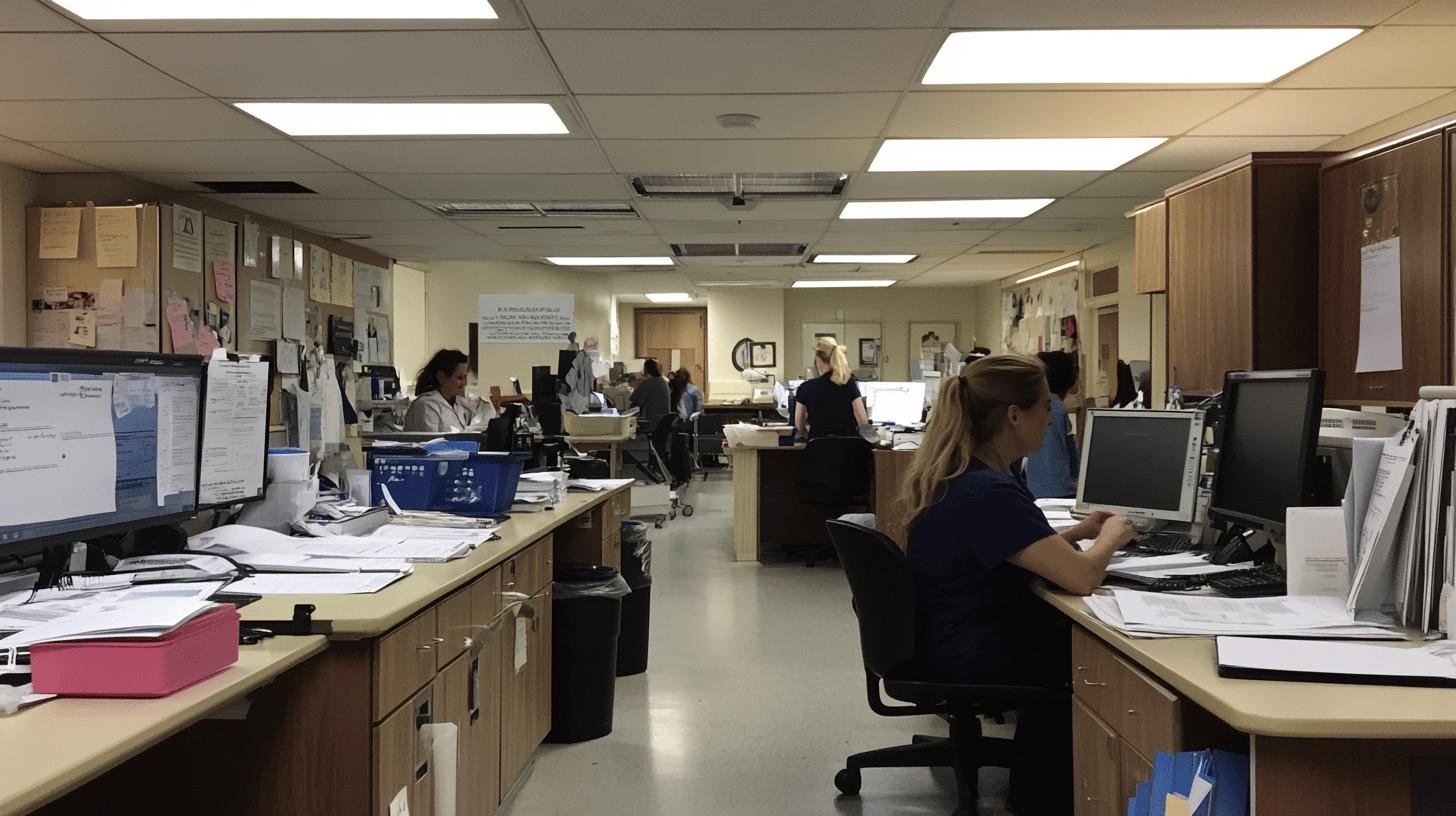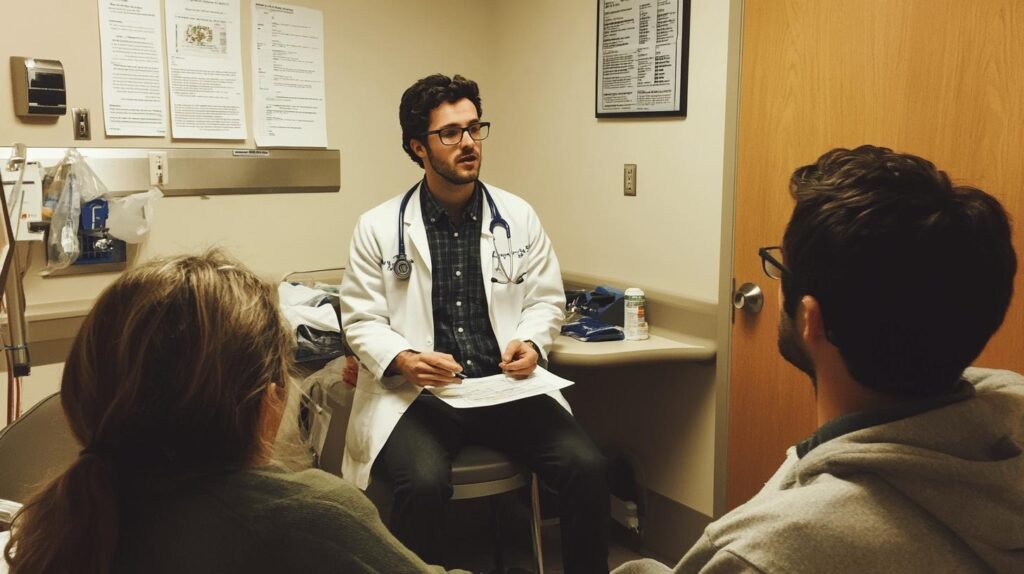TL;DR:
- Cancer Statistics: 1.76 million U.S. diagnoses and 606,880 deaths (2019); 19.3 million cases globally (2020).
- Economic Burden: Treatment costs strain healthcare; lost productivity and caregiver sacrifices impact economies.
- Research Advancements: Investment in AI and precision medicine; personalized treatments enhance outcomes.
- Early Detection Importance: Critical for improving survival rates through screenings (e.g., mammograms).
- Prevention Strategies: Regular screenings, healthy lifestyle, no smoking, limited alcohol, and vaccinations (HPV, Hepatitis B).
- Emotional Impact: Cancer affects mental health; support networks are essential for patients and families.
Why is cancer an important health priority? Cancer might not be the most cheerful topic, but it’s a pressing health priority that demands our attention. Imagine waking up in a world where one out of every three people you know will face a life-altering disease. With over 1.7 million Americans expected to be diagnosed with cancer annually, it’s not just a distant fear but a harsh reality. From its staggering prevalence as the second-leading global death cause to its mounting impact on every corner of the world, understanding cancer is crucial. Stick around, and let’s unpack why addressing cancer couldn’t be more vital for our global health journey.
Understanding the Prevalence of Cancer and Its Impact
Cancer is a significant concern globally. In 2019, approximately 1,762,450 people in the U.S. received a cancer diagnosis, with 606,880 losing their lives to the disease. Worldwide, cancer is the second-leading cause of death, and it continues to rise. It’s on track to become the top cause of death globally, already number one in 91 countries for people under 70.
Why is cancer a central health issue? It’s not just about the statistics. Cancer affects everyone, regardless of location. It causes immense suffering and is a major cause of death before age 70. The emotional, financial, and social impacts on families and communities are immense.
Here’s a glance at some recent statistics:
| Year | Number of Cases | Number of Deaths |
|——|—————–|——————|
| 2018 | 18.1 million | 9.6 million |
| 2019 | 1,762,450 (U.S.) | 606,880 (U.S.) |
| 2020 | 19.3 million | 10 million |
These figures highlight the urgent need to address cancer as a public health priority. Efforts must focus on prevention, early detection, and education, not just treatment. By doing so, we can reduce its impact, save lives, and enhance the quality of life for many. Cancer is more than a health challenge; it affects society deeply, reaching beyond hospitals.
Economic Burden of Cancer on Healthcare Systems

Cancer treatment is a major financial burden on healthcare systems. It’s not just about medicines and doctor visits—billions are spent yearly on hospital stays, surgeries, chemotherapy, and specialized care. The costs are escalating, straining healthcare systems and making them struggle to meet the rising demand.
There are also indirect economic impacts:
- Lost productivity: When individuals cannot work, businesses suffer, and economies take a hit.
- Caregiver time: Family members often provide care, sacrificing their work and income.
- Insurance premiums: Higher treatment costs lead to increased coverage costs for everyone.
- Early retirement: Cancer may force early workforce exit.
- Disability benefits: More claims result in higher government spending.
The economic repercussions don’t stop at bills. They disturb families’ financial stability, causing stress. Direct primary care (DPC) can help by eliminating insurance intermediaries. DPC offers a simpler, often cheaper health management option, easing financial pressure on families dealing with cancer.
Advancements in Cancer Research and Treatment
Cancer research is seeing significant investment, leading to advancements. With billions allocated annually, technologies like AI, precision medicine, and next-gen sequencing are emerging. These tools improve our understanding of cancer on a molecular level, driving treatment and survival breakthroughs. However, cancer remains complex and needs further exploration.
Why is early detection vital? It saves lives by significantly reducing mortality when cancer is caught early. Research has improved screening programs and diagnostic tools. Tests like mammograms, colonoscopies, and HPV screenings help spot cancer early, preventing larger issues. Early detection enhances your chances of overcoming cancer.
Personalized Cancer Treatments
Personalized treatments are a groundbreaking development. Instead of a one-size-fits-all method, treatments are now customized to individual genetic profiles. It’s like getting a tailored outfit that fits perfectly. This approach improves outcomes and reduces side effects, making cancer care more effective and patient-friendly.
Looking forward, cancer research holds promise. Scientists explore immunotherapy, gene editing, and even vaccines to combat the disease. These future directions aim to transform prevention, diagnosis, and treatment methods. While the battle against cancer isn’t over, the progress is promising!
The Emotional and Societal Implications of Cancer

Cancer isn’t just a medical battle; it’s a personal struggle. Emotionally, it impacts both patients and families profoundly. The journey from diagnosis to treatment is intense and filled with fear, anxiety, and anger. Families also bear the burden as caregivers, often juggling multiple roles with limited reprieve. This emotional toll strains relationships and mental health, highlighting the need for holistic care.
Cancer Support Networks
Support networks are crucial. They provide strength during tough times, offering emotional and practical help. From support groups to online communities, they create a system where patients and families find understanding. These networks connect people through shared experiences, fostering bonds. For families, they offer guidance, helping navigate caregiving challenges. Community support assures you’re not alone, making a meaningful difference.
How does cancer awareness reduce stigma? By promoting understanding, awareness campaigns break barriers. They educate the public, encouraging early diagnosis and prevention. Increased awareness replaces fear with knowledge, reducing misconceptions. These initiatives spark conversations, allowing patients and families to share openly, reducing stigma and fostering a supportive community.
Importance of Early Detection and Prevention Strategies
Why is early cancer detection critical? It improves survival rates. Identifying cancer early, particularly for colorectal, breast, cervical, and oral cancers, allows earlier and more effective treatments. It’s like spotting a small problem before it escalates. Screening programs, such as mammograms and colonoscopies, play crucial roles. They’re proactive measures that detect issues early, reduce treatment burdens, and enhance patient outcomes.
What prevention strategies should you consider? Here’s a list to mitigate cancer risk:
- Regular screenings: Follow doctor-recommended tests.
- Healthy lifestyle: Eat well and stay active.
- No smoking: Avoid tobacco, a major cancer risk.
- Limit alcohol: Control intake to lower risk.
- Vaccinations: Get HPV and hepatitis B vaccines to avoid infection-related cancers.
Where does direct primary care (DPC) fit? It emphasizes prevention personally. DPC enhances doctor-patient interactions, facilitating personalized care plans. It’s like having a healthcare coach guiding your wellness journey. This model promotes regular check-ups and lifestyle discussions, catching issues early. Without insurance hassles, DPC allows focusing on personalized prevention strategies.
Final Words
Cancer’s widespread impact and rising prevalence make it a pressing issue worldwide. While it’s a leading cause of death, its health and economic burdens are vast and complex. Recent advancements in cancer research and treatment offer hope, yet the emotional and societal toll remains significant.
Early detection and prevention strategies are vital in reducing cancer’s devastation. Understanding and addressing why cancer is such an important issue guides us toward better healthcare solutions. By focusing on personalized care and proactive prevention, we can make strides in battling this challenge together.
FAQ
Q: What is cancer?
A: Cancer is a disease where cells grow uncontrollably, invading nearby tissues and spreading to other parts of the body. Its impact is significant due to its widespread nature and high mortality rate.
Q: Why is cancer a problem globally?
A: The global problem of cancer exists because it contributes to a high number of deaths and significant health challenges worldwide. Managing its prevalence strains healthcare systems, making it a priority health concern.
Q: What are the top 5 causes of cancer?
A: Top causes include tobacco use, unhealthy diet, physical inactivity, infections (such as HPV), and environmental pollutants. Lifestyle changes can reduce many of these risk factors.
Q: How does cancer impact your life?
A: Cancer impacts life by affecting physical health, emotional well-being, and financial stability. It often requires extensive treatment and can disrupt daily routines and long-term plans.
Q: How can I prevent cancer?
A: You can prevent cancer by adopting healthy lifestyle habits—such as eating a balanced diet, exercising regularly, avoiding tobacco, limiting alcohol, and getting regular screenings and vaccinations.
Q: How common is cancer?
A: Cancer affects 1 in 3 people in a lifetime. In 2019, 1.7 million Americans were expected to be diagnosed, marking it a prevalent and pressing health issue.
Q: Why is cancer an important health issue?
A: Cancer remains a leading cause of death worldwide, impacting millions every year. Its complexity requires ongoing research and resource allocation to improve treatments and outcomes.
Q: What are some interesting facts about cancer?
A: Interesting facts include that cancer can affect any part of the body, lifestyle changes can prevent about one-third of cases, and early detection improves treatment success significantly.
Q: What do cancer statistics reveal about its global impact?
A: Global cancer statistics show it’s the second-leading cause of death worldwide and is projected to become the leading cause soon. This data emphasizes the need for increased awareness and research.

